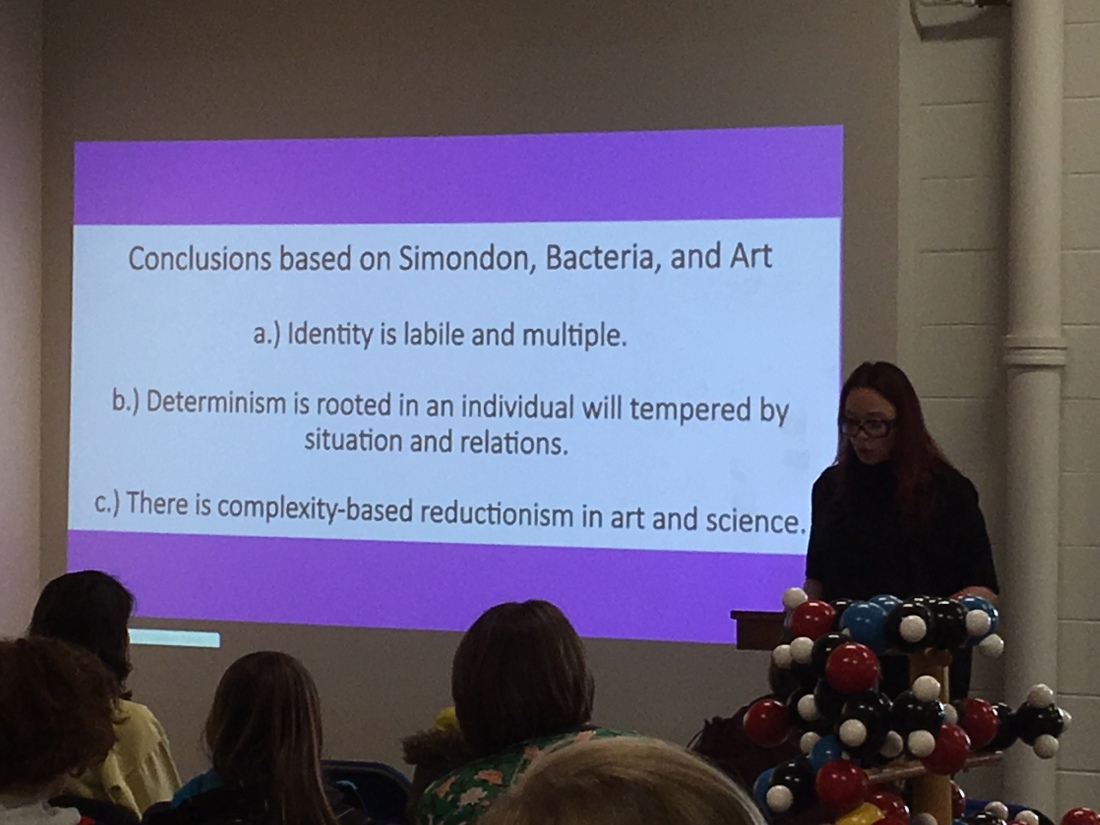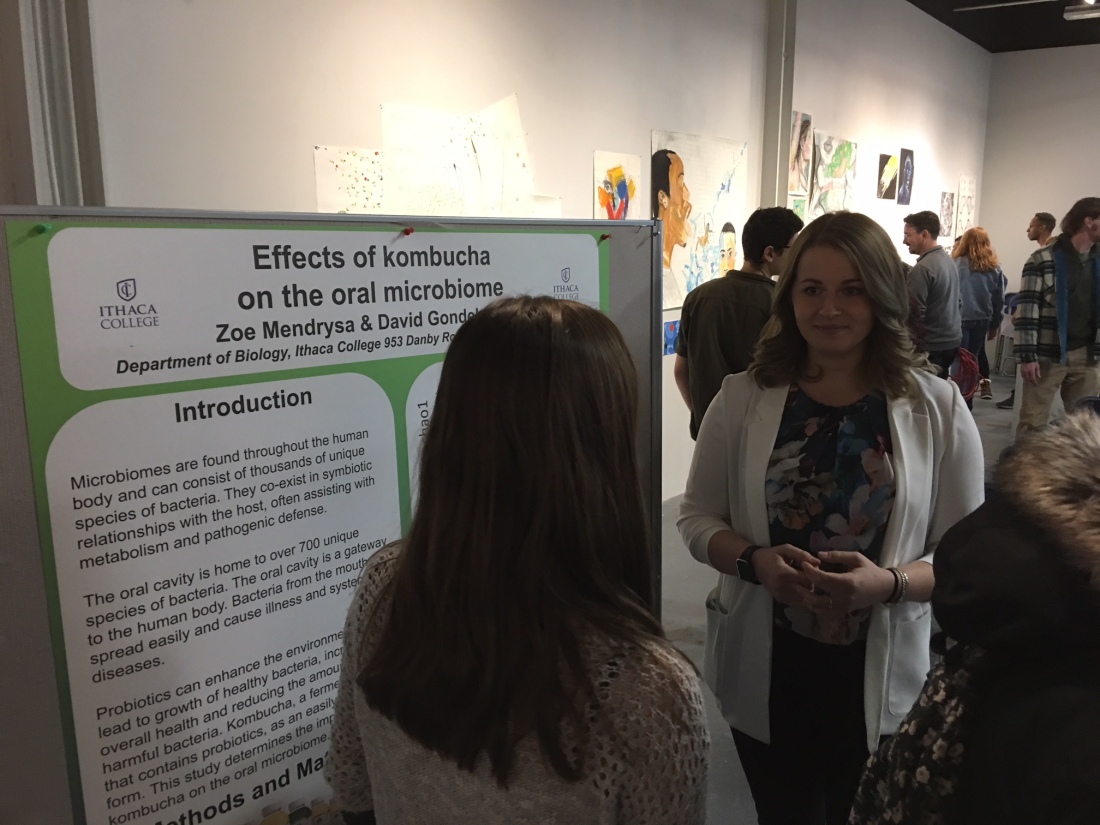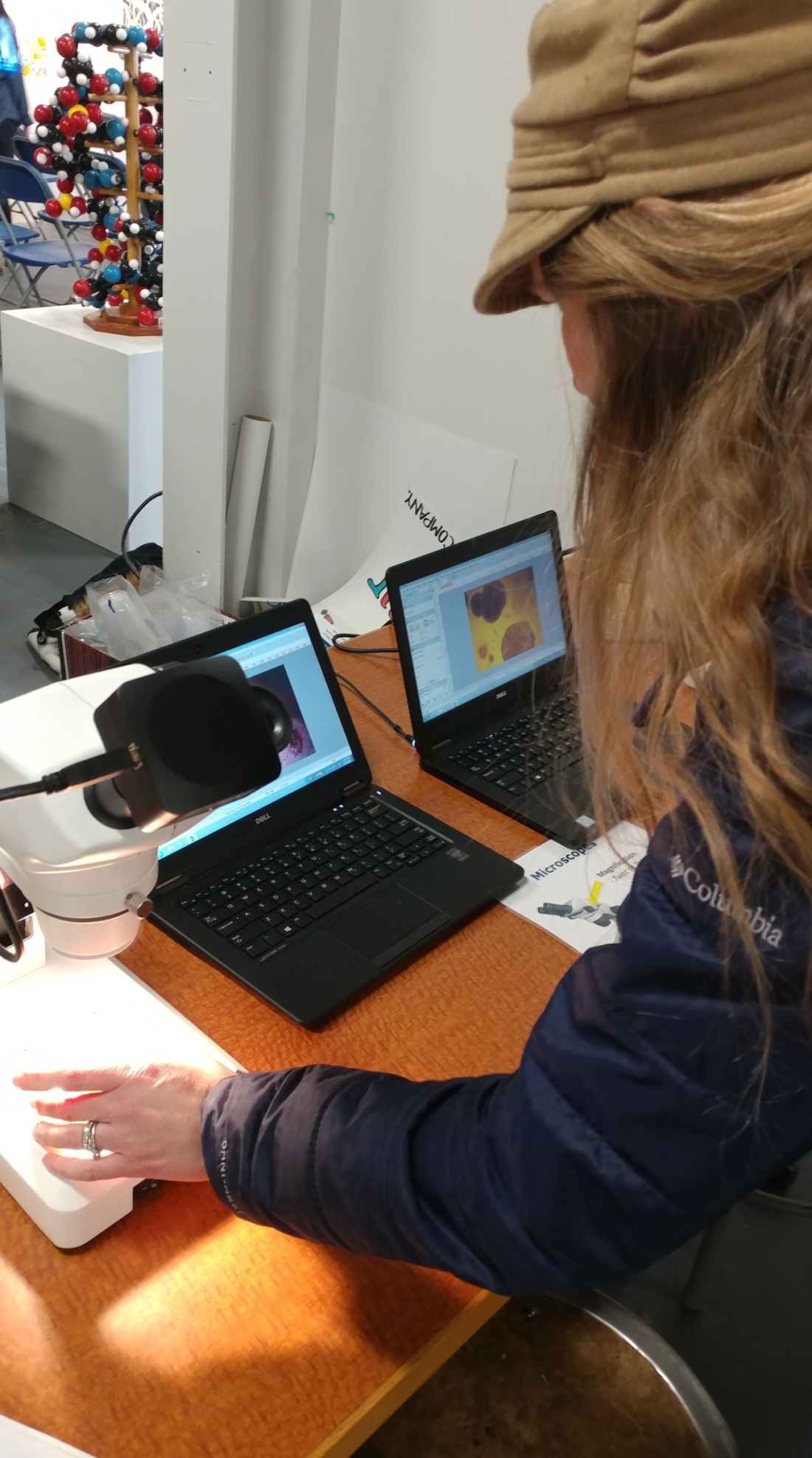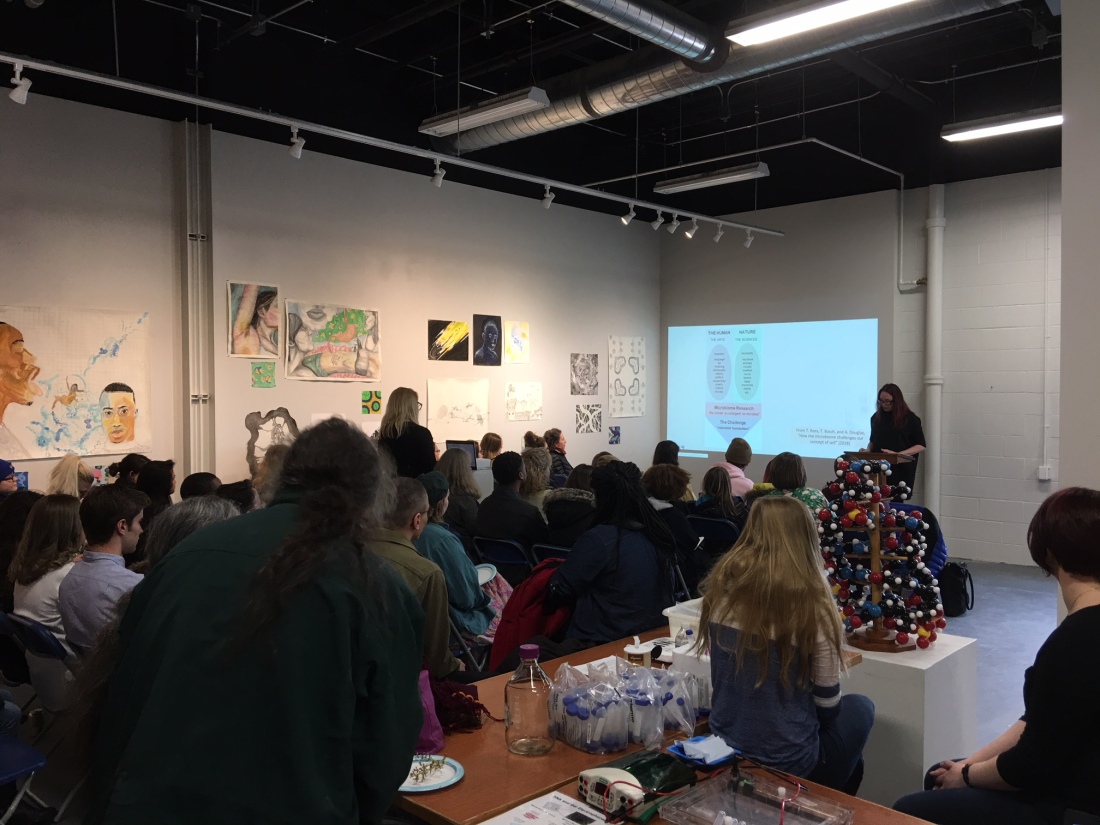The biology students will track the changes in their own and art student’s microbiome via daily saliva samples after changing one aspect of their diet. Students will learn more about the science behind these changes as they chart daily habits and behaviors. Biology students will examine the results using what they are learning in their microbiology curriculum. The art students will use the data and images to create art that deals with extended notions of self- this will include portraiture, both traditional, biological and hybrid that considers the profound influence of bacteria.
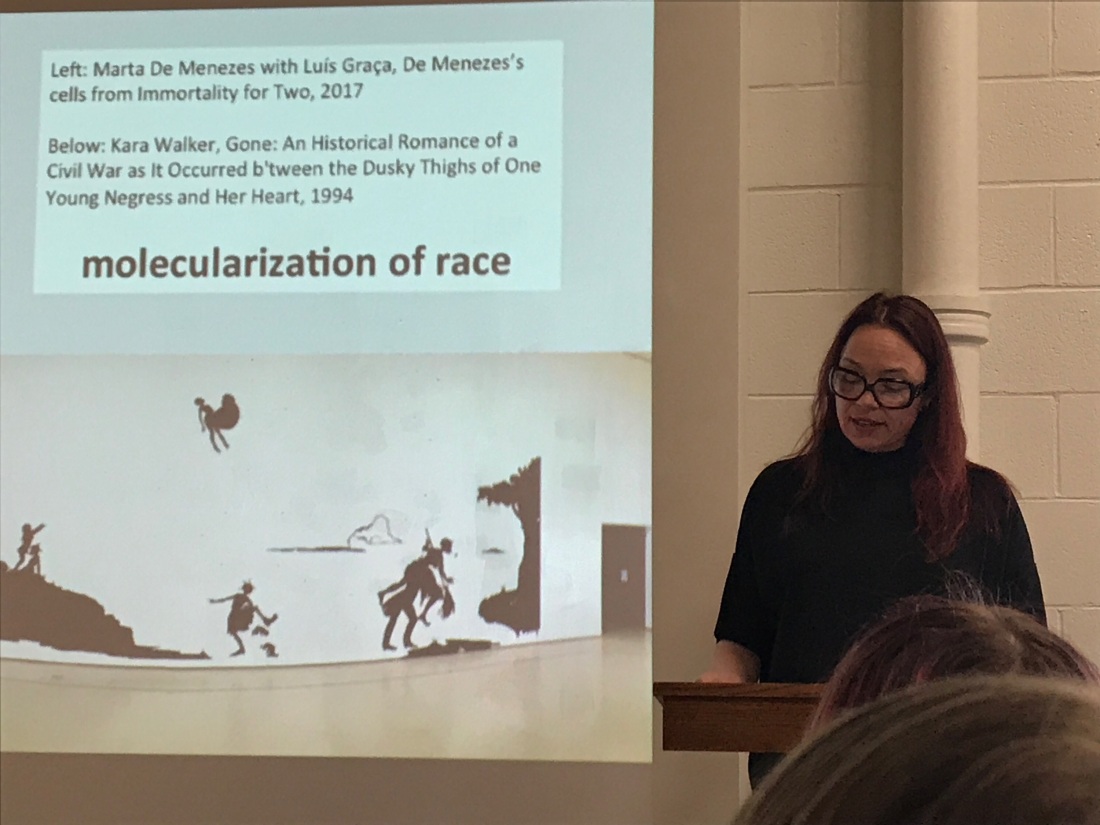
Bacteria and Embodying the Molecular (pdf under Symposium section of blog)
